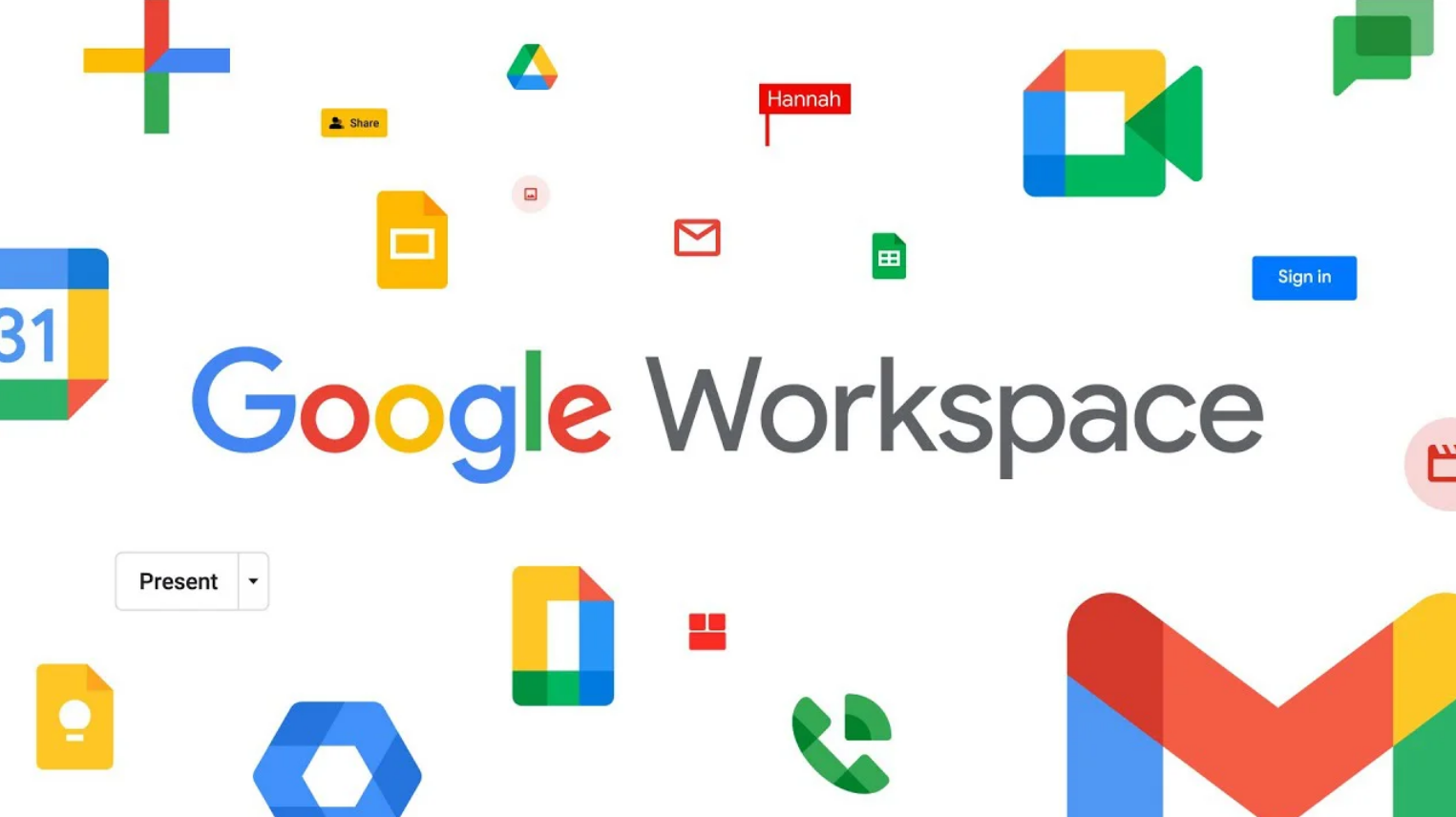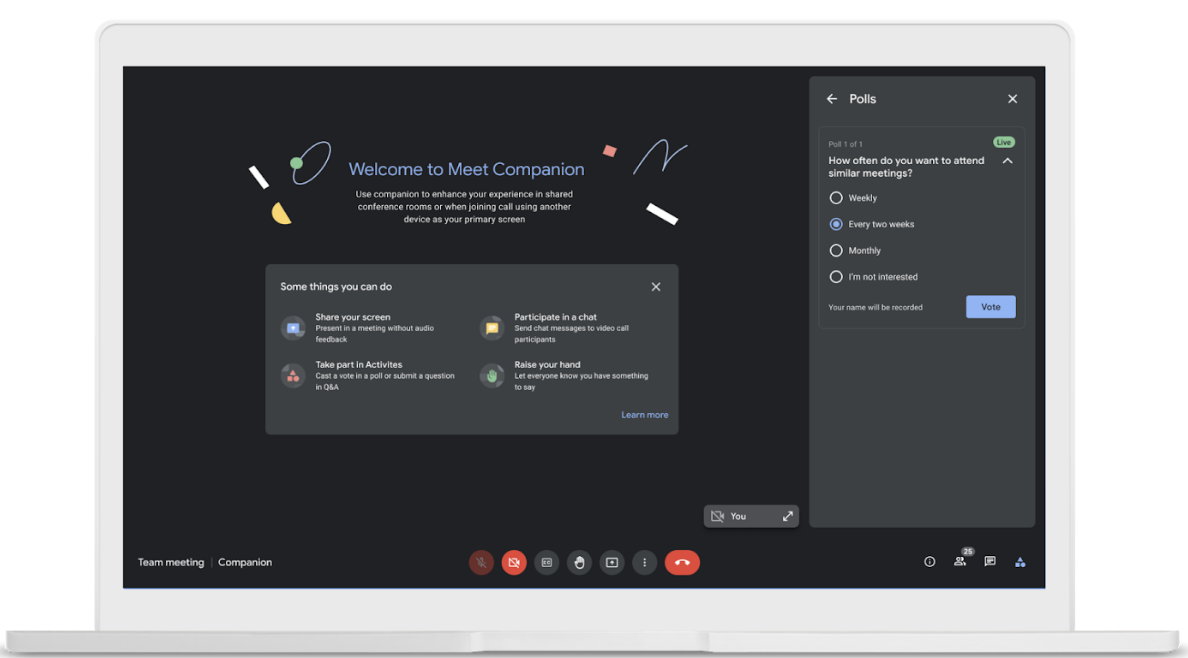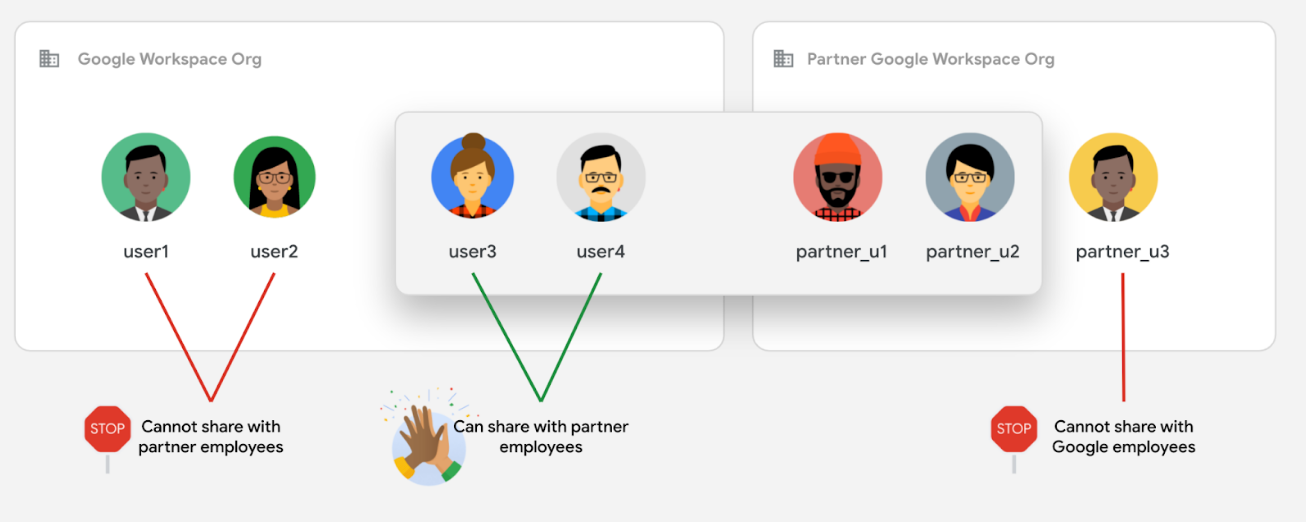 CLOUD
CLOUD
 CLOUD
CLOUD
 CLOUD
CLOUD
Google LLC is bringing its full suite of Google Workspace productivity tools to the masses as part of a series of announcements today aimed at helping people communicate and collaborate online.
As well as making Google Workspace available to the entire world, Google is making some major changes to the platform, with the evolution of “Rooms” in Google Chat to “Spaces,” enhancements to Google Meet aimed at promoting more equal collaboration, and a new individual subscription offer with access to premium features. There’s also a bunch of security and privacy-related capabilities that will be coming to the platform soon.
Javier Soltero, Google’s vice president and general manager of Workspace, said in a press briefing that the announcements are the culmination of Google’s continuing attempt to bring all those capabilities closer together for what he said are now more than 3 billion Workspace users. “Today marks a very important milestone for us as we continue down that path,” he said.
Google Workspace serves as a central portal for Google’s full suite of productivity tools and apps. It’s the home of Gmail, Chat, Calendar, Drive, Docs, Sheets, Meet and many more apps besides. It was formerly known as G Suite before being rebranded last year. Until now, while most of those apps have been accessible in standalone form to individual users, the full Google Workspace experience has been available only to organizations such as businesses, nonprofits and educational institutions.
With Google Workspace for everyone, that changes. The entire suite is now available to anyone with a Gmail account. All they need to do to enable the integrated experience is to switch on Google Chat in Gmail, Google said.
“By bringing Google Workspace to everyone, we’re making it easy for people to stay connected, get organized and achieve more together, whether it’s advancing a cause, planning your family reunion, assigning next steps for the PTA or discussing this month’s book club pick,” Aparna Pappu, vice president of engineering at Workspace, and Kelly Waldher, vice president of marketing at Workspace, said in a co-authored blog post.
The new Google Workspace Individual subscription, meanwhile, is aimed at individual business owners, providing access to the premium capabilities within the suite. Those include things such as smart booking services, more professional video meeting experiences and personalized email marketing.
“Workspace Individual was created to help people focus their time on doing what they love — like meeting with customers and designing personalized services — and less time on everyday tasks like scheduling appointments and emailing customers,” Pappu and Waldher said.
Google Workspace Individual will roll out soon in six markets at first, namely the U.S., Australia, Brazil, Canada, Japan and Mexico.
Moving on to the Workspace platform evolution, the biggest change here is the introduction of Spaces, which replaces the Rooms experience in Google Chat. Spaces is meant to serve as a dedicated space for users to organize their contacts and team members, topics and projects in Google Workspace.
The company has promised a more streamlined and flexible interface with Spaces, with new features to come such as in-line topic threading, presence indicators, custom statuses, expressive reactions and a collapsible view. The new Spaces will integrate seamlessly with user’s files and tasks, acting as their base for getting thing done.

New Google Spaces
Another aim of Spaces is to improve knowledge sharing and community building for teams of all sizes. It will act as a place to organize all of the files, information and conversations relevant to each project, where topics can be intelligently moderated.
“With the ability to pin messages where everyone can see them, Spaces will play a crucial role in helping people stay connected and informed as hybrid work evolves,” Soltero said in a second blog post.
On the collaboration front, the Google Meet video calling service gets new features that are meant to help users contribute more equally. For example, Google Meet Companion Mode is a new feature that will land in September and provide access to interactive features and controls such as polls, in-meeting chat, hand raising, Q&A, live captions and so on, irrespective of where the user is located or what device they are using.
“Colleagues who are in the same meeting room together will enable Companion Mode on their personal devices, giving them their own video tile in Meet and helping them to stay connected with their remote teammates,” Soltero said.

Companion Mode
Other new features in Meet include more Calendar reservation options, allowing invitees to indicate if they’ll join remotely or attend the physical meeting room. Google is also planning to introduce more moderation controls from next month, giving hosts the ability to prevent the use of in-meeting chat and prohibit presenting during meetings to mute or unmute individual participants.
“With this update, Google Workspace is creating a new competitive advantage by optimizing for a single, connected experience across its products that it is extending to consumers and individual business owners, to align with the experience that its enterprise and education subscribers benefit from today,” said analyst Patrick Moorhead of Moor Insights & Strategy.
Finally, there are more security and privacy features on the way. The updates here will include client-side encryption to address a range of data sovereignty and compliance issues, Google said.
Meanwhile, the new trust rules for Drive will give administrators better control over how files are shared within and outside an organization. And the new Drive labels will classify files and apply access controls based on their sensitivity level, Google said. These updates will all roll out by the fall.

Applying trust rules to files
International Data Corp. Enterprise Mobility analyst Phil Hochmuth said today’s safety updates give Google Workspace a differentiated approach toward securing collaboration that focuses on end user experiences.
“With client-side encryption, Google Workspace offers enterprises confidentiality of their data as now only they own the keys to their content,” he said. “It’s a solution for mobile workers, which shows that Google Workspace understands the need for a trusted cloud.”
With reporting from Robert Hof
Support our mission to keep content open and free by engaging with theCUBE community. Join theCUBE’s Alumni Trust Network, where technology leaders connect, share intelligence and create opportunities.
Founded by tech visionaries John Furrier and Dave Vellante, SiliconANGLE Media has built a dynamic ecosystem of industry-leading digital media brands that reach 15+ million elite tech professionals. Our new proprietary theCUBE AI Video Cloud is breaking ground in audience interaction, leveraging theCUBEai.com neural network to help technology companies make data-driven decisions and stay at the forefront of industry conversations.